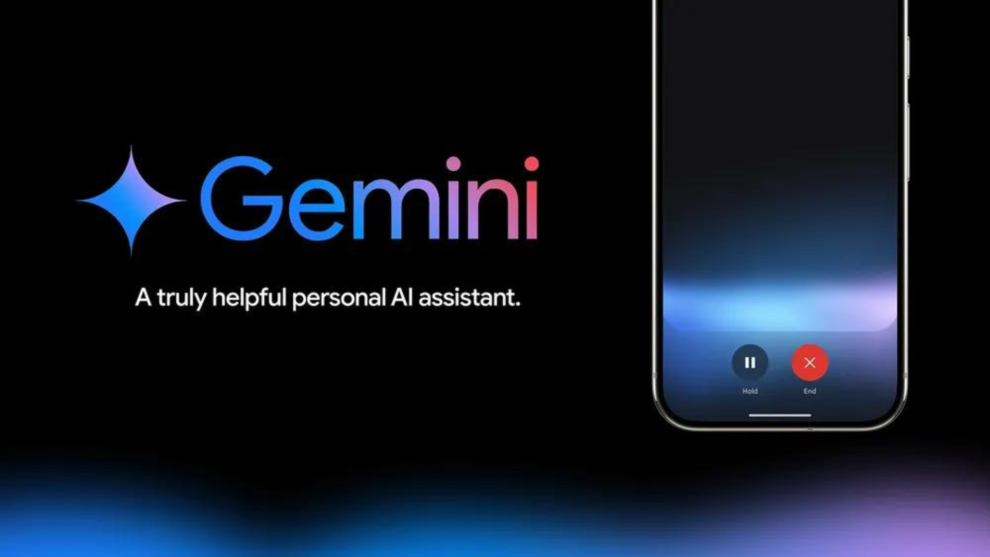In a move poised to reshape how millions interact with their smartphones, Google has begun rolling out voice-powered AI chat to Android devices. This groundbreaking update integrates advanced conversational AI capabilities directly into the Android operating system, enabling users to engage in natural, voice-driven conversations with their devices.
This strategic move underscores Google’s commitment to making AI more accessible and intuitive. By leveraging the ubiquity of Android, the company aims to bring the power of voice-powered AI chat to a vast user base, potentially transforming how people access information, complete tasks, and interact with the digital world. Early reports suggest that the initial rollout is targeted towards a select group of users, with plans for a broader expansion in the coming months.
Democratizing AI: Google’s Vision for Voice-Powered Chat
Google’s foray into voice-powered AI chat on Android is not merely a technological feat; it represents a broader vision for the future of human-computer interaction. By seamlessly integrating conversational AI into the mobile experience, the company is aiming to:
- Enhance Accessibility: Voice-powered chat removes barriers for users who may have difficulty typing or navigating traditional interfaces, making technology more inclusive.
- Boost Productivity: The ability to interact with devices using natural language streamlines tasks, from setting reminders to sending messages, freeing up users’ time and attention.
- Foster Natural Interactions: Conversational AI allows for more intuitive and human-like interactions with technology, potentially leading to a more engaging and personalized user experience.
Under the Hood: The Technology Powering Google’s Voice-Powered AI Chat
The voice-powered AI chat on Android is built upon Google’s extensive research and development in natural language processing (NLP) and machine learning. At its core, the system leverages sophisticated algorithms to:
- Understand spoken language: The system can accurately transcribe spoken words into text, even in noisy environments.
- Interpret intent: The system can decipher the meaning behind users’ queries, even if phrased in different ways.
- Generate relevant responses: The system can generate natural-sounding responses that address users’ needs.
Early Impressions: What Users Are Saying
The initial rollout of voice-powered AI chat on Android has generated considerable excitement among early adopters. Users have reported being impressed by the system’s ability to understand and respond to a wide range of queries, from simple requests like “set a timer for 10 minutes” to more complex questions like “what’s the weather forecast for tomorrow?”.
- “It’s like having a personal assistant in my pocket,” one user remarked.
- “The voice recognition is surprisingly accurate,” another user noted.
- “I can finally get things done without having to type everything out,” a third user exclaimed.
However, some users have also pointed out areas for improvement.
- Some have reported occasional misunderstandings, particularly with complex queries or in noisy environments.
- Others have expressed concerns about privacy and data security, given the sensitive nature of voice data.
The Road Ahead: Implications and Future Directions
Google’s rollout of voice-powered AI chat on Android marks a significant milestone in the evolution of conversational AI. By bringing this technology to the masses, the company is poised to accelerate its adoption and drive innovation in the field. The potential implications are far-reaching, spanning various domains:
- Customer Service: Businesses could leverage voice-powered AI chat to provide more efficient and personalized customer support.
- Education: Students could use voice-powered AI chat to access information and complete assignments more easily.
- Healthcare: Patients could use voice-powered AI chat to communicate with healthcare providers and manage their health.
Looking to the future, Google has hinted at several exciting possibilities for voice-powered AI chat on Android:
- Multimodal Interactions: The system could be enhanced to understand and respond to not only voice but also other modalities, such as gestures and facial expressions.
- Proactive Assistance: The system could anticipate users’ needs and offer suggestions or assistance even before they ask.
- Personalized Experiences: The system could learn from users’ interactions to provide more tailored and relevant responses.
However, I also encountered a few instances where the system struggled to understand my intent or provided inaccurate information. I believe that these are teething problems that will be ironed out as the technology matures.
Overall, I am optimistic about the future of voice-powered AI chat on Android. I believe that this technology has the potential to make our lives easier, more productive, and more enjoyable. I am eager to see how Google continues to innovate in this space and bring the benefits of conversational AI to even more people around the world.
Google’s rollout of voice-powered AI chat on Android is a bold move that could redefine the mobile experience. By harnessing the power of conversational AI, the company is paving the way for a future where our devices are not just tools but intelligent companions. While the technology is still in its early stages, the potential is undeniable. As Google continues to refine and expand its voice-powered AI chat capabilities, we can expect to see even more innovative and transformative applications in the years to come.








